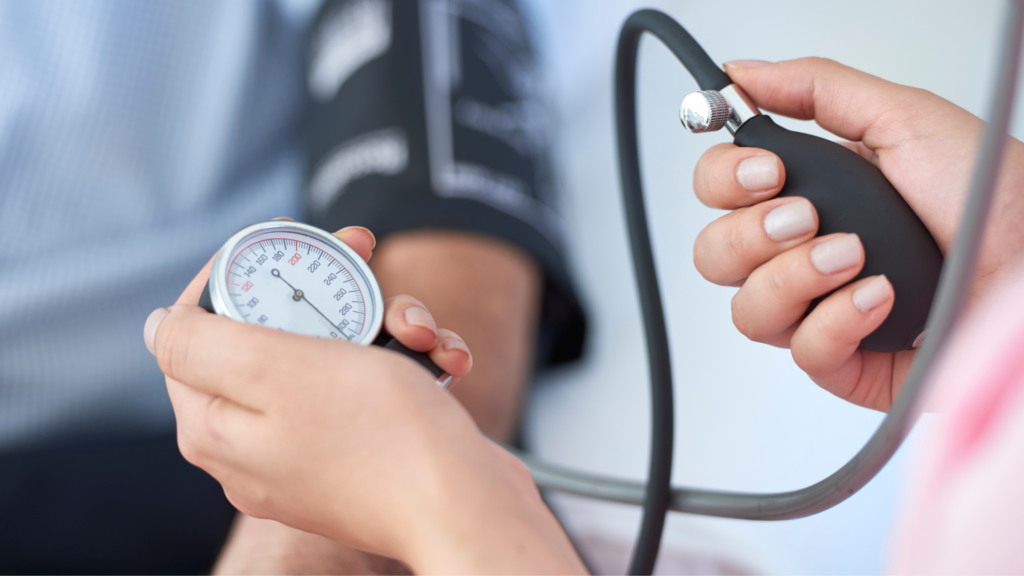Preventive health screenings for adults are essential for detecting health risks early and maintaining long-term wellness. This comprehensive guide explores their significance, the key screenings to consider, and actionable tips for proactive health management.
In today’s fast-paced world, where the demands of work and personal life often take precedence, it’s easy to put health on the back burner. However, taking a proactive approach to wellness can make a world of difference. Preventive health screenings are one of the most effective ways to ensure long-term health, providing early detection of potential issues and promoting a higher quality of life. Whether you’re in your 20s, 40s, or 60s, understanding the value and types of screenings available can empower you to take charge of your health.
Why Preventive Health Screenings Are Essential
Preventive health screenings for adults are not just a healthcare trend—they are a cornerstone of modern medicine, ensuring early detection of health risks and promoting overall wellness. Here’s why they matter:
- Early Detection Saves Lives: Many serious health conditions, such as cancer, heart disease, and diabetes, show few or no symptoms in their early stages. Screenings can identify these conditions before they progress, enabling timely treatment.
- Cost Savings: Addressing health issues early often costs less than managing advanced conditions. For example, detecting prediabetes allows individuals to make lifestyle changes that can prevent or delay the onset of type 2 diabetes, reducing the need for costly medications and treatments.
- Improved Quality of Life: By catching potential issues early, screenings help prevent complications that could impact your daily life. Healthy individuals are better equipped to work, socialize, and enjoy life’s activities.
- Encourages a Proactive Mindset: Regular screenings cultivate a habit of health awareness, encouraging individuals to take charge of their well-being and make informed decisions about their lifestyle.

Key Preventive Health Screenings for Adults
The screenings recommended for you depend on your age, gender, medical history, and risk factors. Below is a comprehensive guide to the most critical screenings for adults.
1. Blood Pressure Checks
High blood pressure (hypertension) is often called the “silent killer” because it usually has no symptoms. Hypertension screening for adults is critical for preventing severe cardiovascular issues. Left untreated, it can lead to heart attack, stroke, kidney damage, and more. While monitoring blood pressure is essential, addressing the root causes such as poor diet, inflammation, and stress is equally critical in maintaining cardiovascular health.
2. Cholesterol Testing
High cholesterol increases the risk of heart disease and stroke. A lipid panel test measures your levels of LDL (“bad” cholesterol), HDL (“good” cholesterol), and triglycerides. Alongside regular screenings, focus on reducing dietary inflammation through whole, unprocessed foods, healthy fats, and reducing sugar intake to support optimal cholesterol levels.
3. Cancer Screenings
Breast Cancer:
- Mammograms are recommended every one to two years for women starting at age 40, or earlier for those with a family history of breast cancer. Preventive measures such as an anti-inflammatory diet, maintaining a healthy weight, and minimizing exposure to environmental toxins can further reduce risk.
Colorectal Cancer:
- Adults aged 45 and older should have regular screenings, such as colonoscopies, stool tests, or sigmoidoscopies. Those with a family history of colorectal cancer may need to begin screenings earlier. A fiber-rich diet and probiotic support can enhance gut health and reduce colorectal cancer risk.
Skin Cancer:
- Regular self-exams and annual visits to a dermatologist can help detect melanoma and other skin cancers in their early stages. Limiting excessive sun exposure and prioritizing antioxidant-rich foods can support skin health.
Prostate Cancer:
- Men aged 50 and older should discuss prostate-specific antigen (PSA) testing with their doctor, particularly if they have a family history of prostate cancer. Reducing systemic inflammation through diet and lifestyle may also contribute to prostate health.
4. Diabetes Screening
Type 2 diabetes often develops silently, making routine screening essential. The American Diabetes Association recommends blood glucose tests for adults starting at age 35, or earlier for those with risk factors like obesity, high blood pressure, or a family history of diabetes. However, addressing dietary habits, reducing refined carbohydrate intake, and prioritizing physical activity are foundational steps to preventing and managing insulin resistance.
5. Bone Density Tests
Osteoporosis is a condition where bones become weak and brittle, increasing the risk of fractures. Women aged 65 and older should have a bone density test, with earlier screenings for those with risk factors like a history of fractures or long-term steroid use. Adequate intake of calcium, magnesium, vitamin D, and anti-inflammatory foods can help preserve bone health.
6. Mental Health Screenings
Mental health is just as important as physical health. Depression and anxiety screenings are vital for adults, particularly during stressful life events or transitions. Holistic approaches such as dietary changes, stress-reduction practices like meditation, and addressing gut health can complement traditional mental health care.
7. Vision and Hearing Tests
As we age, our vision and hearing naturally decline. Adults should have their vision checked every 2-4 years before age 50 and annually after that. Hearing tests are recommended every 10 years for adults under 50 and every three years thereafter. Nutritional support, including antioxidants and omega-3 fatty acids, can support eye and ear health.

How to Prepare for Health Screenings
Maximizing the benefits of preventive health screenings involves preparation and communication with your healthcare provider. Here are some tips:
- Know Your Family History: Many health conditions have a genetic component. Sharing your family’s medical history can help your doctor recommend the most relevant screenings.
- Track Your Health: Keep a record of past screenings, immunizations, and medical conditions. This can guide your doctor in planning future tests.
- Ask Questions: Don’t hesitate to ask your doctor why a specific screening is recommended, what the procedure entails, and what the results mean.
- Follow Instructions: Some screenings, like fasting blood tests or colonoscopies, require specific preparations. Adhering to these guidelines ensures accurate results.
The Role of Lifestyle in Preventive Care
Preventive screenings are most effective when combined with a healthy lifestyle. Incorporating healthy lifestyle tips for disease prevention, such as an anti-inflammatory diet and regular exercise, amplifies their benefits. Here are some habits that can complement your screening routine:
- Balanced Diet: Focus on anti-inflammatory, nutrient-dense foods, such as leafy greens, colorful vegetables, fruits, lean proteins, and healthy fats, while minimizing processed and sugary foods.
- Regular Exercise: Physical activity helps maintain a healthy weight, lowers blood pressure, improves mental health, and reduces the risk of many conditions.
- Adequate Sleep: Quality sleep is essential for immune function, mental health, and overall well-being.
- Stress Management: Chronic stress can negatively impact physical and mental health. Practices like mindfulness, yoga, or therapy can help.
- Avoid Risky Behaviors: Limiting alcohol consumption, quitting smoking, and using sunscreen are simple ways to reduce health risks.
Overcoming Barriers to Preventive Care
Despite the benefits, many people neglect preventive health screenings due to misconceptions, fear, or lack of access. Here are some strategies to overcome common barriers:
- Educate Yourself: Understanding the purpose and process of screenings can alleviate fears.
- Schedule in Advance: Set reminders for annual check-ups and follow-up appointments.
- Leverage Insurance Benefits: Most health insurance plans cover many preventive services at little or no cost.
- Utilize Community Resources: Free or low-cost screenings are often available through local health departments, clinics, or nonprofit organizations.
The Bottom Line: Prioritize Your Health
Preventive health screenings are a powerful tool for maintaining wellness and detecting potential health issues early. Schedule your preventive screenings today with EG Healthcare and take the first step toward proactive health management. They represent an investment in your future, offering peace of mind and the opportunity to enjoy a healthier, more active life.
Don’t wait until symptoms appear or a condition worsens to take action. Schedule your next preventive health screening today and take the first step toward a healthier, more informed you. Remember, health is your most valuable asset—treat it with the care it deserves.